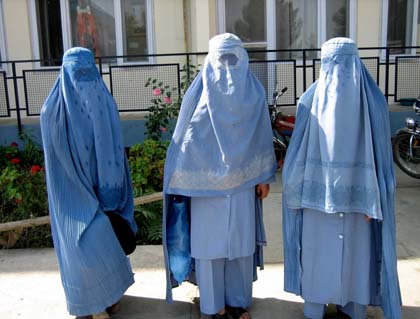The novelty of women’s issues begins to pall and the hackneyed phrases of rape and violence can no more raise public concerns. The vapid incidents, for instance a teenage girl fell prey to gang rape, a woman’s head was bashed on the wall or she was tortured to death, a female child was molested by the man of her next-door neighbor, an unmarried girl gave birth to three children as a result of her father’s molestation, a school girl lost her life in a suicide bombing, a female parliamentarian survived a terrorist attack, etc. can hardly shake one’s conscience. Moreover, the rhetorical speeches made by officials on public ceremonies appear to remain as mere words and the issue of women’s rights is used as political deception during electoral campaigns to curry their favor. Hence, the problem is not only the violation of women’s rights and dignity but also the exploitation of her emotions.
The glib talks and mouth-watering speeches, about women’s rights, during electoral campaigns are not the panaceas for the wounds made in the hearts of Afghan women. Therefore, it would be naïve of them to further fall for the bogus claims made by political parties. How long Afghan politicians would tantalize women via usual clichés?
Only magnanimous actions can allay the anguish of Afghan women. After all, the feminist parties, civil rights’ activists, officials, etc. should support the rights and status of women in an effective and suitable manner. All pro-women voices will not be considered positive. For instance, reports say that a group of Afghan men marched through Kabul last Thursday to draw attention to women’s rights by donning head-to-toe burqas. The men marched under a leaden sky, with the bright blue burqas falling over their heads down to muddy sneakers and boots. The demonstrators, associated with a group called Afghan Peace Volunteers, said they had organized the march ahead of International Women’s Day on March 8.
However, this sort of defending women has hurt the feelings of some female passersby. As a result, Medina Ali, a 16-year-old student is quoted as, “We don’t need anyone to defend our rights. This is just a foreign project to create a bad image for the burqa and Afghanistan. They’re trying to make those of us who cover our faces feel bad.”
Furthermore, an older woman Bibi Gul, who wore a burqa herself, is quoted as, “My husband and son tell me I should take my burqa off. But I’m used to it. I’ve been wearing this for 35 years.”
During the Taliban regime, Afghan women used to put on burqa under duress, however now they wear of their own volition. Since burqa is part of cultural norms, attacking the demeanor of women will lead to their reaction. For instance, in some villages of Afghanistan, wearing burqa is incumbent on women – as a feminine custom. In addition, some use burqa not to reveal their faces or identity in insecure regions, as some policewomen do.
Afghan women have not yet railed against this sort of clothing or claimed to be in chains. Their hijab does not impede them of engaging in social activities. In a nascent democratic atmosphere of Afghanistan, women are given the freedom of clothing choice, whether to wear burqa or not. Some traditional women find burqa more religious form of clothing and talking about it would be a sore point. Cultural norms, which originate from public beliefs, should be held in respect.
The prospect of women’s rights is really promising and not as bad as it is dispersed. As a result, a report said that more than 95 per cent of the 56 national constitutions adopted after 1995 guarantee gender equality, compared with 79 per cent of those enacted earlier.
The life span of girls born today is almost 73 years, on average, about four years more than in 1995. The number of women who die in childbirth has decreased by 42 per cent globally since 1995, with the biggest reduction in South Asia.
Girls and boys attend primary school at nearly equal rates worldwide — and primary school is now tuition-free in almost 90 per cent of low-income countries. “Today, women and girls have a much greater chance to live healthy and secure lives, and their fundamental human rights are now protected by law in many countries throughout the world.” the report said.
“Women and girls have access to educational and work opportunities that were previously unimaginable.” But on the negative side, the report said more than 170 countries currently have legal barriers in place that prevent women and girls from experiencing the same rights, protections and liberties as men and boys.
Overall, women are entitled to their rights and dignity on a large scale comparing to a decade ago in our country. They play integral role in political, social, cultural and educational issues. They have made great progress in their social life and run high positions in political and educational arena. Except in some traditional villages, they are not deemed inferior creature anymore. So, there is no cultural barrier for them to attend school or take part in social activities. To cut it short, we have to point out the progress of women too and whoever vows to support women’s rights at any circumstances, has to fulfill their commitments.

